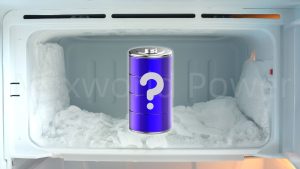How to dispose of Lithium coin Batteries?
There are many products on the market today that use lithium-ion batteries: vape pens, cell phones, laptops, power tools, and more. Are there any battery recycling programs? Are batteries hazardous waste? Can you throw the battery in the trash? As consumers, it is important to understand how to properly handle lithium coin batteries.
lithium polymer batteries are made from materials considered key minerals such as cobalt, graphite, and lithium. Key minerals are raw materials of economic and strategic importance to a country, whose supply is at high risk of disruption and for which there are no easy alternatives. When these batteries end up in the trash, we completely lose this critical resource. Thus, it is of great importance to discuss how to dispose of lithium coin cell batteries.

Are Lithium-Ion Batteries Actually Hazardous Waste?
Absolutely! lithium polymer batteries are definitely a hazardous waste. After the battery is no longer usable, because it no longer seems to hold a charge, it’s time to get rid of it.
But while we might think the battery is drained because it stops working, there’s actually a lot of dangerous stuff left behind.
Lithium-ion batteries, for example, retain 80% of their heat capacity after completion. As a result, things like cell phone batteries and even small e-cigarette batteries can burn.
If not disposed of properly, lithium polymer batteries not only pose an immediate fire risk but also pose many long-term risks, as they carry many toxic substances that, when crushed, leak into the ground and contaminate our water. Sometimes, lithium car batteries can also play an important role.

Why is it challenging to the treat lithium-ion batteries as e-waste?
Handling lithium batteries is challenging for three main reasons. First, in many cases, it’s difficult to get these batteries out of the device because they’re attached to the hardware.
Cause two: It is easy to damage lithium batteries in the dismantling process. Therefore, specialized separation and recovery often require specialized tools, processes, and controls.
Finally, a number of fire accidents can be attributed to lithium-ion batteries due to high-temperature exothermic reactions. High-capacity lithium polymer batteries can discharge to reduce the risk of fire or toxic smoke release during processing. The probability of thermal events needs to be much higher than with conventional batteries, including while the lithium battery is in storage. Different regions apply different standards, The treatment facility must have the correct license to dispose of spent batteries.
How to dispose of lithium coin batteries?
Lithium-ion batteries can be recycled, but only at permitted treatment facilities. When discarded, they must be disposed of at a household e-waste collection point or battery-recycling drop-off location. Of course, the electrical hazard needs to be carefully considered. High-capacity batteries can present an electric shock hazard as they can deliver higher voltages.

What can be done about the hazards of lithium-ion battery disposal?
Some cities have begun to spread information about the dangers. Many electronics stores offer Maxworld lithium battery return programs, so it’s worth asking when you buy anything with a lithium-ion battery. Good to know there’s hope for recycling batteries! But don’t just throw them in your recycling bin! Depending on your location, there are a number of recycling programs that can recycle your batteries. There are so many types of lithium polymer batteries that it is difficult to know how to dispose of coin cell lithium rechargeable batteries properly. One thing is for sure, be cautious and always double-check! Sometimes, the lithium battery price is also a very important factor.

How to dispose of lithium coin batteries properly:
A, Remove the battery from the device if possible.
B. Store the battery in a cool, dry place, such as a plastic container.
C. If batteries are physically damaged, store them in insulated plastic bags to avoid short circuits.
D. Pick up your batteries at your local battery recycling bin or recycling center.
Things to avoid when recycling lithium ion batteries:
A. Do not throw the battery into the ordinary household garbage or recycling bin.
B. Don’t burn batteries in a fire, they may explode.
C. Do not mix damaged and undamaged batteries.
D. Avoid storing batteries in metal containers.
E. Do not store batteries for long periods of time.
Where to recycle lithium-ion batteries:
A. Look for battery recycling bins at your local municipal office or recreation center.
B. Ask if your local library or school has a battery recycling program.
C. Contact the retailer or manufacturer to check if they have a battery recycling program.
Conclusion
In a word, it is necessary to learn how to dispose of lithium coin batteries and lithium-ion batteries SHOULD be taken to separate recycling or household hazardous waste collection points. To prevent fires, tape battery terminals and/or place lithium-ion batteries in separate plastic bags.











